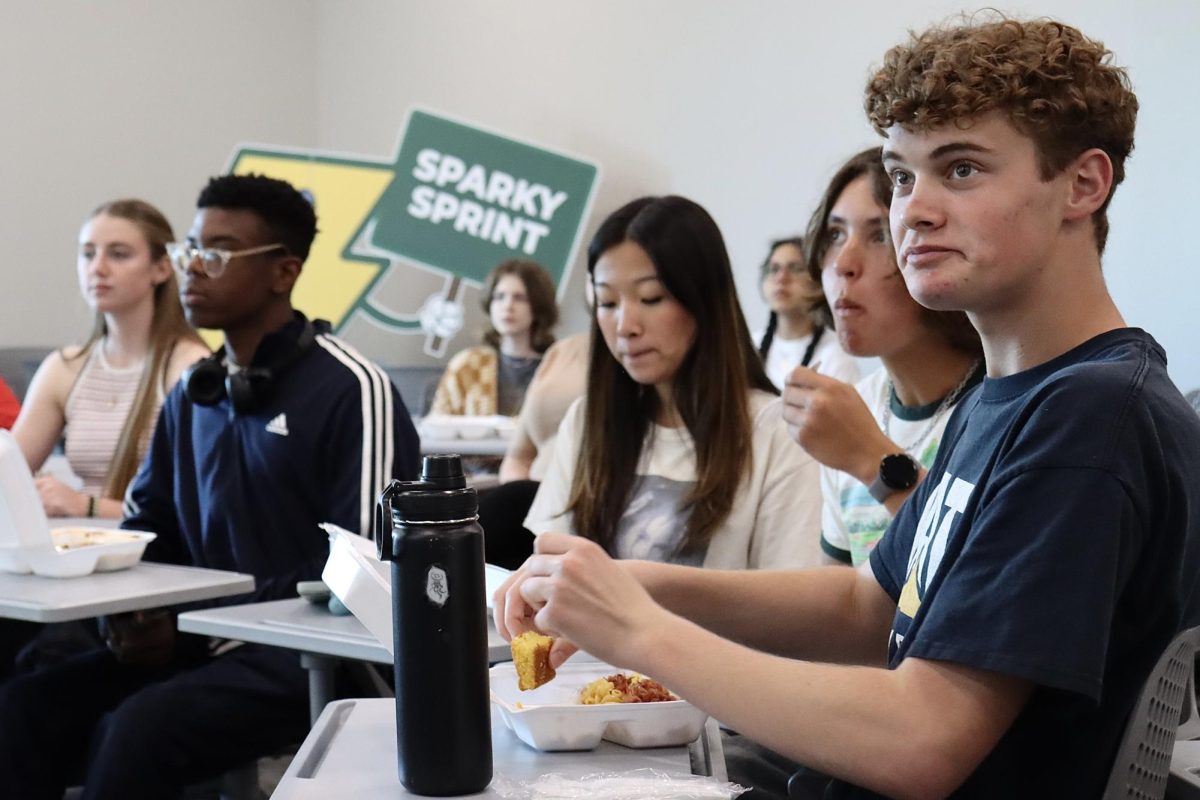Ah, to be Rory Gilmore! The epitome of millennial success: a small-town girl gets into the Holy Trinity—Yale, Harvard, and Princeton—on what? Good grades? While many of us continue to idolize the teen icon, Generation Z is facing a slightly different reality. In 2024, students work tooth and nail to get into mid-ranked state schools, and yet, Gen Z is still dubbed the “lazy generation.”
US English Teacher Natalie Updike said, “I think [the stereotypes] are coming from people who maybe don’t understand all of the new, difficult things that Gen Z is facing because times are rapidly changing, so I don’t think they’re accurate.”
As Gen Z grows up and attains meaningful roles within society, one would expect the critique from older generations to subside. Alas, continued comments persistently subvert the hard work of teens and young adults worldwide.
Acceptance rates are at an all-time low. According to Ivy Coach, Ivy League acceptance rates have decreased by nearly 10% in the last 14 years. Florida state schools have similarly risen in competitiveness as more people flock toward warm weather. According to US News, the University of Florida, the state’s most prestigious school, only accepts between 23-30% of its applicants.
Increasing competition for college has rightfully induced terror in many Gen Z students. These scholars confront big questions about their future while enduring relentless reproval.
But, they continue to look on the bright side. Sophomore Georgia Kurland said, “The competitiveness of Florida schools can be nerve-racking at times, but it’s all gonna work out the way it’s supposed to. I think the best way to look at it is that you have no control over [your future], you can only do what you’re passionate about. Work as hard as you can … it’s all you can do.”
Working hard has become a minimum for competitive students, and many teachers wonder if what they’re doing is enough. “The kids are under so much pressure that you don’t want to handicap them in any sort of way,” said Visual Arts Department Chair and Upper School teacher Charla Gaglio.
In fact, Gen Z is so heavily pressured into overworking themselves that they sometimes have to cut corners in their studies. “I watch my students talk about [their studies]. They plan taking a test like they are going to Vegas, like they’re playing the odds. Like, ‘I have to get a whatever on this test to maintain this GPA,’” said Gaglio.
Seeing how every grade affects your life is extremely overwhelming, and all this stress for one reason: college. More and more every year, college becomes the common goal for every teen, so much so that students jam-pack their every second with school, homework, studying, sports, and extracurriculars.
Freshman Ryan Jaffee has been on the Varsity Soccer team since eighth grade, so his daily schedule is a balancing act between school and sports. “Probably like two hours of sports a day. Versus like, two and a half hours of schoolwork each day as well. Plus actual school,” said Jaffee. According to Nationwide’s Children, teenagers on average are only getting seven hours of sleep per night to make room for their hours of work.
As Updike pointed out, the stereotypes are derived from misunderstanding. So even if Gen Z blatantly faces challenges that prior generations were immune from, the stereotypes are going to persist, no matter what.
Gaglio explained her view on these stereotypes, admitting that “as you grow up and mature, you also can, perhaps, at least in my case, understand where the other side is coming from.” So maybe, there’s hope.

![Thespians pose on a staircase at the District IV Thespian Festival. [Front to back] Luca Baker, Maddison Cirino, Tanyiah Ellison, Alex Lewis, Summer Farkas, Jill Marcus, Ella Mathews, Sanjay Sinha, Isabella Jank, Sofia Lee, Boston Littlepage-Santana, Sally Keane, Tyler Biggar, Tanner Johnson, Jasper Hallock-Wishner, Remy de Paris, Alex Jank, Kaelie Dieter, and Daniel Cooper. Photo by Michael McCarthy.](https://spschronicle.org/wp-content/uploads/2024/12/image1-900x1200.jpg)








































